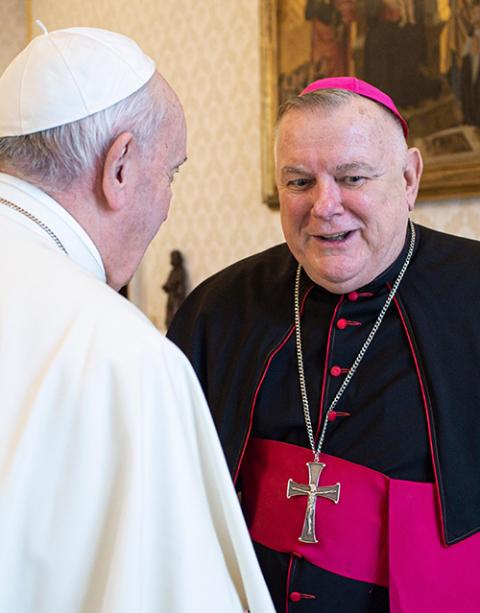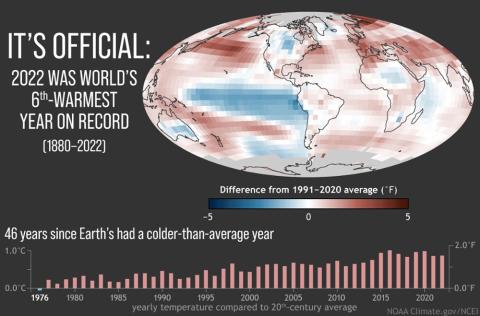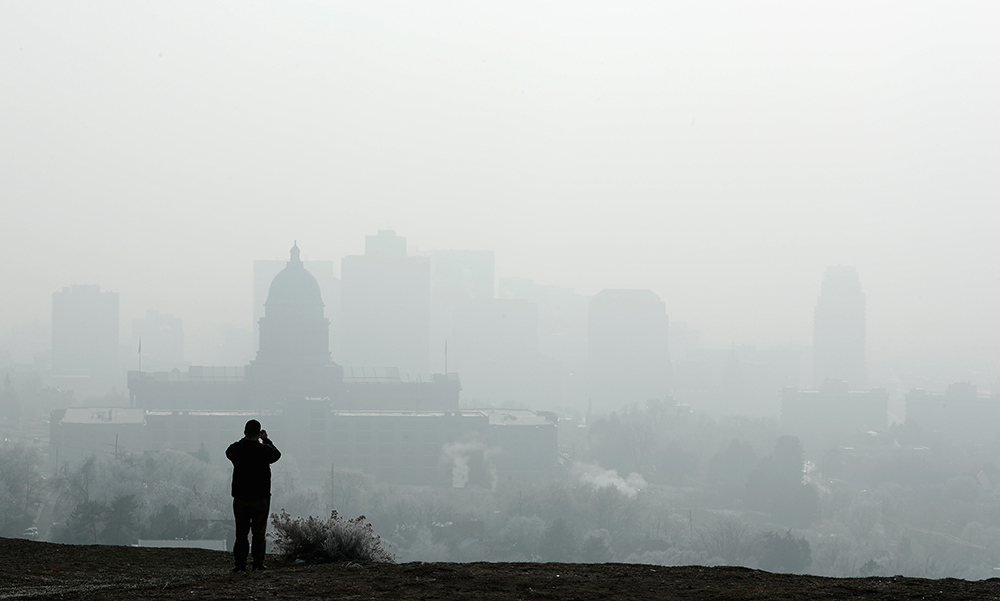
A man stops to take a picture of the Utah State Capitol and buildings that are shrouded in smog in downtown Salt Lake City Dec. 12, 2017. (CNS/Reuters/George Frey)
In Laudate Deum, a new apostolic exhortation released last week, Pope Francis continued the conversation from his 2015 encyclical, "Laudato Si', on Care for Our Common Home." Climate scientists said the science is sound, and theologians applauded Francis' "laser focus" on the climate crisis in Laudate Deum.
At the beginning of Laudate Deum, Francis praises the U.S. bishops' analysis of climate change as a social issue, citing a 2019 global climate change backgrounder from the U.S. Conference of Catholic Bishops that says, "Our care for one another and our care for the earth are intimately bound together. Climate change is one of the principal challenges facing society and the global community. The effects of climate change are borne by the most vulnerable people, whether at home or around the world."
Archbishop Thomas Wenski of Miami celebrated the inclusion of the U.S. bishops' quote as recognition of the conference's long-standing work on climate. "Care for the environment is not something that the pope is dragging us American bishops to. We've been there," he said.
Daniel DiLeo, associate professor and director of the justice and peace studies program at Creighton University, said he saw the citation as "a strategic move to hold them to their own standard."
In 2021, DiLeo co-published a study finding that the majority of U.S. bishops never mentioned climate change in their columns published in the year before or the four years after Laudato Si' was released.
DiLeo, who is also a consultant to the Catholic Climate Covenant, said he wasn't optimistic about a new posture from U.S. bishops post-Laudate Deum. "Nothing thus far has inspired them to act in a way commensurate with the science," he said.
DiLeo encouraged bishops to commit to reducing emissions from diocesan operations by 50% by 2030 and to net-zero by 2040 as a way of enacting Laudate Deum's call and energizing young Catholics. Earlier this year, Christiana Figueres, the United Nations official who orchestrated the 2015 Paris Agreement, challenged the U.S. Catholic church to commit to net-zero emissions by 2040.
Advertisement
DiLeo said "the most important thing that individual Catholics can do is to stop thinking as individuals," urging them to "leverage their collective power" in their dioceses and with their elected officials.
In Laudate Deum, Francis' has his own challenge for the U.S.: "If we consider that emissions per individual in the United States are about two times greater than those of individuals living in China, and about seven times greater than the average of the poorest countries, we can state that a broad change in the irresponsible lifestyle connected with the Western model would have a significant long-term impact."
Responding to that criticism, Wenski said that he thought the comparison between China and the U.S. was "a little bit off," adding, "I think China is probably polluting in ways worse than is acknowledged by the Holy Father."
According to the World Bank, the U.S. emitted 13.0 metric tons per capita of carbon dioxide in 2020, while China emitted 7.8 metric tons per capita.
Still, Wenski acknowledged, "There is certainly a lot of conspicuous consumption as part of our culture here in the United States." He said he hoped the call-out would be an "occasion for some introspection on our part."
The archbishop said that the Miami Archdiocese would continue to implement "greener" and "energy-efficient" practices in parishes and schools. At the bishops' conference, Wenski said Laudate Deum would "help us to set our legislative priorities" when advocating for government policies.
Climate scientists praised Francis' extensive explanation of the latest climate science.
Carmelite Fr. Eduardo Agosta Scarel, a climate scientist and senior adviser to the Laudato Si' Movement, told Earthbeat that Laudate Deum's climate science section "is based on the most updated knowledge of this scientific discipline." He attributed the strength of the section to Francis being a "good listener" who knows who to ask for advice.
Still, Scarel took issue with the pope's use of the term "correlation" to describe the relationship between greenhouse gas emissions and climate change. "It is not merely a 'correlation,' " he said, "but anthropogenic climate change is the best theory science has to explain the current behavior of the Earth’s climate system."
Carlos Martinez, an atmospheric scientist and chair of the Committee on Spirituality, Multifaith Outreach, and Science at the American Meteorological Society, said that Francis' straightforward and "simple" climate communication will help climate scientists reach religious audiences who are apathetic or skeptical about climate change.
Francis' message helps climate scientists convey to those audiences "the state of our Earth, the moral human responsibility of good stewardship to our planet, as well as the scientific backing that provides that call to action," said Martinez, who said Laudato Si' was one factor that inspired him to become a climate scientist.
Martinez praised Francis' analysis of geoengineering, agreeing that it could simply paste over the cracks and draw attention away from ending emissions. However, Martinez thinks carbon capture technology has some positive potential.
A focus of Laudate Deum is the upcoming United Nations climate change summit, COP28. After analyzing the victories and failures of previous summits, Francis calls for "binding forms of energy transition" at COP28 that are "efficient, obligatory and readily monitored."
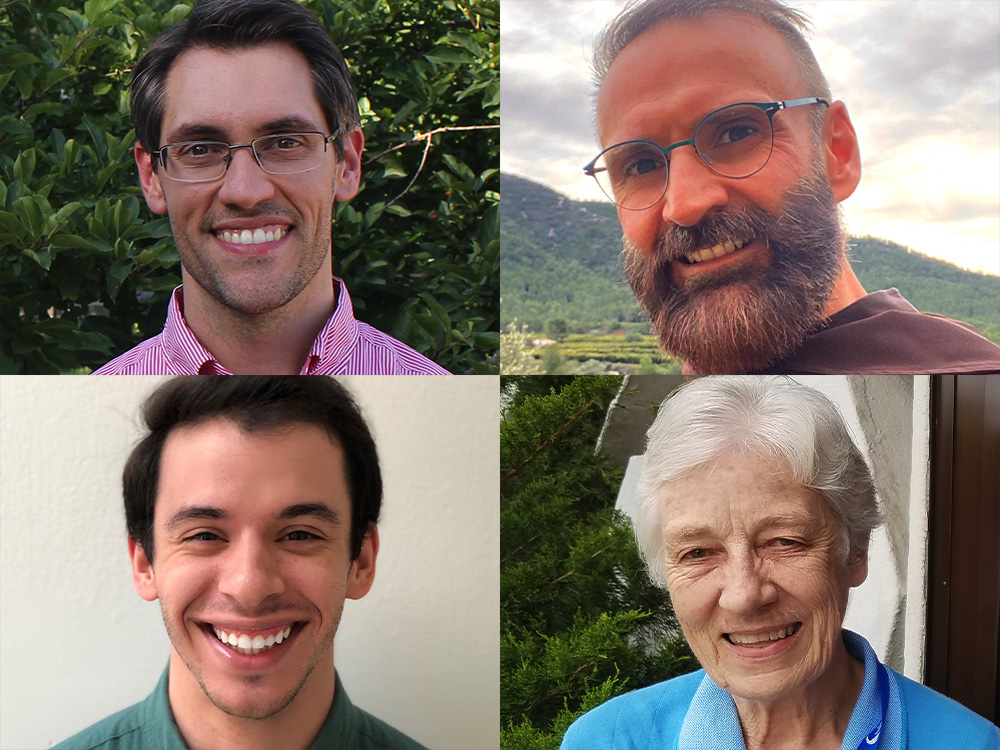
Clockwise from top left: Daniel DiLeo (EarthBeat photo/Brian Roewe); Carmelite Fr. Eduardo Agosta Scarel (Courtesy of Eduardo Agosta Scarel); Sacred Heart of Mary Sr. Veronica Brand (GSR photo/Chris Herlinger); Carlos Martinez (Courtesy of Carlos Martinez)
Sr. Veronica Brand, who represents the Religious of the Sacred Heart of Mary at the U.N., said she has seen the impact of Francis' environmental teaching on U.N. leaders.
"At the time of the negotiation on the sustainable development goals, I was actually in the room when one of the co-facilitators, who was a Muslim, came in and told member states that they had reading to do on the weekend," Brand said. That reading was Laudato Si'.
In Laudate Deum, Brand appreciated Francis' concept of "multilateralism from below."
"We are trying to bring voices 'from below' as Pope Francis called it, the voices of people on the ground," she said of sisters' participation at the U.N.
Blair Nelsen, who represents the Sisters of St. Joseph of Peace at the U.N., applauded Francis' analysis of the state of multilateralism today and his emphasis on the importance of civil society organizations.
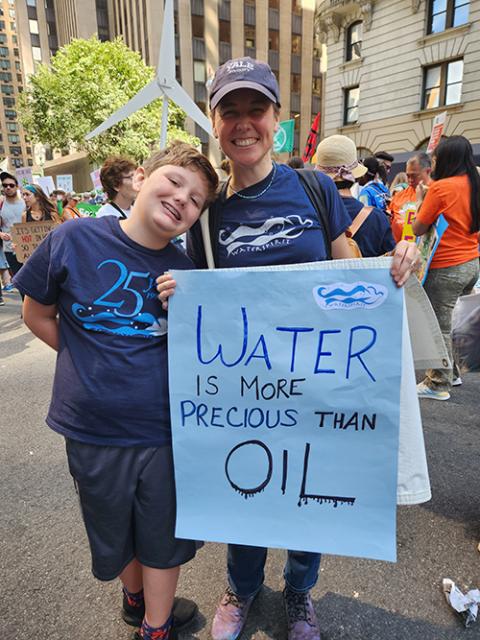
Blair Nelsen, lay representative at the U.N. for the Congregation of the Sisters of St. Joseph of Peace and the executive director of ecospiritual nonprofit Waterspirit, at the Sept 17 climate march joined by her son, Noah Prata Nelsen. (GSR photo/Chris Herlinger)
"He expresses a hope for what multilateral action could achieve, while at the same time recognizing that we have to keep the pressure up," Nelsen said. "There's large incentive for destructive business as usual under the technocratic paradigm."
Christiana Zenner, associate professor of theology, science and ethics at Fordham University, praised Francis' discussion of the technocratic paradigm, a concept he uses to criticize the idea of technology and economic growth as an unquestioned good.
"I think that one of the lasting impacts of this document will be in the way that it helped make the idea of the technocratic paradigm graspable," said Zenner.
Zenner expressed shock at the document's citation of feminist science and technology studies scholar Donna Haraway — who has described herself as a "lapsed" Catholic.
Zenner said that in addition to the fact that the Vatican rarely cites women in papal documents, "the failure of the Vatican, Pope Francis in this case, to cite and engage the situated as well as the intellectual work of women within Catholicism, but instead to get a random citation of Donna Haraway just feels extremely bizarre."
"In this document, as in other documents in Catholic social teaching, women are talked about more than they are given voice," Zenner added. She highlighted a sentence where Laudate Deum mentions that poor people with many children are often blamed for climate change, resulting in, the document says, "mutilating women in less developed countries."
While Zenner and Nelsen affirmed Francis' sharp pushback against blaming climate change on overpopulation, Zenner said that the unclear reference to mutilation without context or citations "reads as a pope talking about women's experiences without actually knowing what he's talking about."
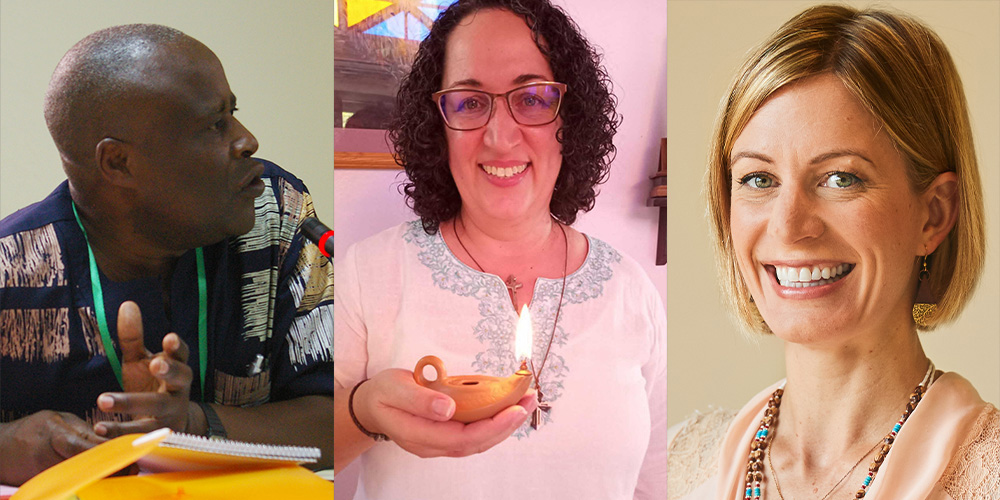
From left: Fr. Emmanuel Katongole (NCR photo/Joshua J. McElwee); Dominican Sr. Lissette Avilés-Ríos (Courtesy of Lissette Avilés-Ríos); Christiana Zenner (Courtesy of Christiana Zenner)
Fr. Emmanuel Katongole, a professor of theology and peace studies at the University of Notre Dame, said he was happy to see Francis make a connection between Indigenous culture and healthy ecology, something he practices with the Bethany Land Institute, an organization inspired by Laudato Si' to teach regenerative agriculture in Uganda.
"There is a sense in which these native, Indigenous, poor communities might provide us the direction into the future, because they are not as deeply pegged or tied into the technocratic paradigm," he said.
Katongole said that the underlying issue behind the economics of "unlimited growth" that Francis criticizes in Laudate Deum is a spirituality that needs to reconnect relationships "with God, with one another, and with the Earth."
"I want to see workshops at all parishes so that everybody, every Catholic, every Christian becomes literate on this document," he said. "We are illiterate about this crisis and about the theological significance and the spiritual significance of this crisis."
Dominican Sr. Lissette Avilés-Ríos, who hosts a weekly radio show and podcast called "Cuidando La Creación" ("Caring for Creation") in San Juan, Puerto Rico, echoed the call for "at least a good portion" of Catholics to read Laudate Deum. Avilés-Ríos emphasized the importance of communicating Francis' message and the climate science so people can understand its local impact.
"As Christians, it's our turn to unite our faith and our life," she said.

